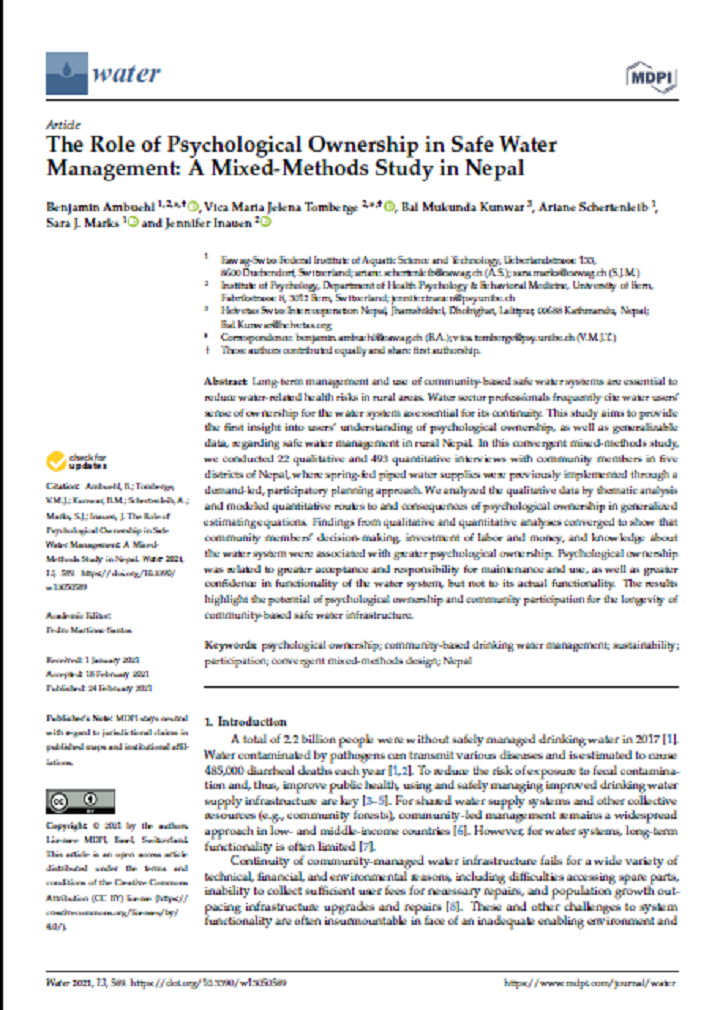The Role of Psychological Ownership in Safe Water Management: A Mixed- Methods Study in Nepal
Ambuehl B., Tomberge, V.M.J., Kunwar, B.M., Schertenleib, A., Marks, S.J., Inauen, J. (2021)

Published in: 2021
Pages: 18
Publisher:
MDPI
Author:
Ambuehl B., Tomberge, V.M.J., Kunwar, B.M., Schertenleib, A., Marks, S.J., Inauen, J.
Uploaded by:
SuSanA Admin
Partner profile:
common upload
775 Views
5 Downloads
Long-term management and use of community-based safe water systems are essential to reduce water-related health risks in rural areas. Water sector professionals frequently cite water users’ sense of ownership for the water system as essential for its continuity. This study aims to provide the first insight into users’ understanding of psychological ownership, as well as generalizable data, regarding safe water management in rural Nepal. In this convergent mixed-methods study, we conducted 22 qualitative and 493 quantitative interviews with community members in five districts of Nepal, where spring-fed piped water supplies were previously implemented through a demand-led, participatory planning approach. We analyzed the qualitative data by thematic analysis and modeled quantitative routes to and consequences of psychological ownership in generalized estimating equations. Findings from qualitative and quantitative analyses converged to show that community members’ decision-making, investment of labor and money, and knowledge about the water system were associated with greater psychological ownership. Psychological ownership was related to greater acceptance and responsibility for maintenance and use, as well as greater confidence in functionality of the water system, but not to its actual functionality. The results highlight the potential of psychological ownership and community participation for the longevity of community-based safe water infrastructure.
Bibliographic information
Ambuehl B., Tomberge, V.M.J., Kunwar, B.M., Schertenleib, A., Marks, S.J., Inauen, J. (2021). The Role of Psychological Ownership in Safe Water Management: A Mixed- Methods Study in Nepal. MDPI
Filter tags
Case studies in other formats East Asia & Pacific English














